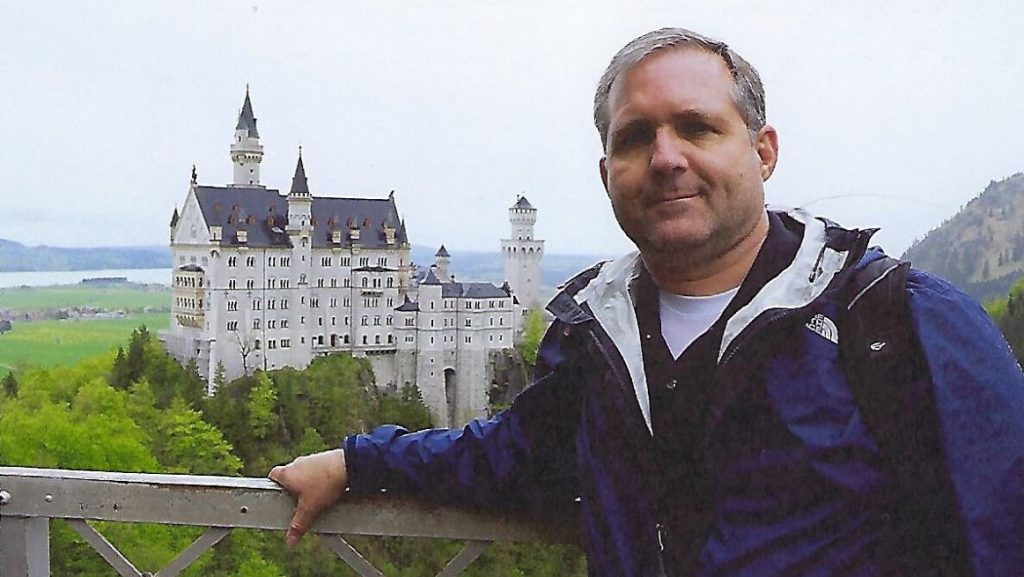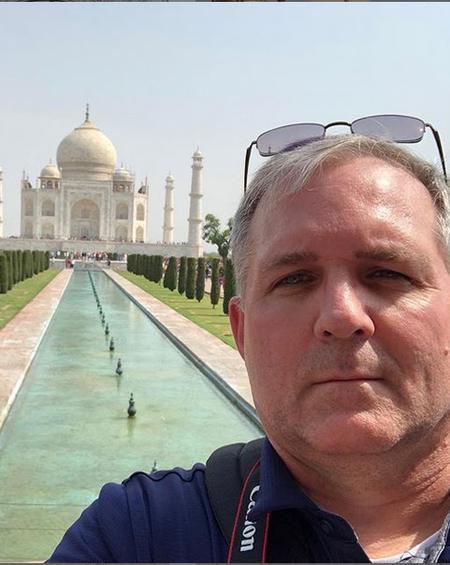Michigan Man Jailed in Russia for Spying Asks Biden to Bargain with Putin for His Release
A former U.S. Marine imprisoned in Russia is pleading for President Biden to negotiate his release during the summit with Vladimir Putin, who says he’s open to prisoner exchanges. Michigan native Paul Whelan is serving a 16-year sentence for espionage.

Michigan native Paul Whelan is serving a 16-year sentence in Russia on espionage charges he and the U.S. vehemently deny.
It’s been almost three years since Russia arrested Michigan native Paul Whelan on charges of espionage.
Russia accused him of having classified information that Whelan says he thought were vacation photos.
After a trial held behind closed doors, Whelan was sentenced to 16 years in a Russian prison camp.
He’s allowed to make some phone calls.
Whelan’s parents taped a call from him off of a speakerphone two weeks ago, a statement timed for release on the eve of President Biden’s first face-to-face meeting with Russian President Vladimir Putin.

“President Biden. After 30 months of being wrongfully detained by the Russian government, which is twice as long as American citizens were held hostage in Tehran, I implore you to bring this appalling case of hostage diplomacy to an end. I remain innocent. No crime of espionage occurred. The secret trial without evidence proves those facts. The abduction of an American tourist cannot stand. Congress, American citizens and supporters throughout the world echo my call for immediate, decisive action. Please bring me home to my family and my dog Flora where I belong.”
In a recent interview, Putin said he was open to the idea of prisoner exchanges.
U.S. officials have said Russia should simply free Whelan outright, arguing there is no concrete evidence against him.
But Whelan’s twin brother, David Whelan, says it’s hard to predict how important of an agenda item prisoner swaps will truly be when Biden meets with Putin.
Listen: David Whelan discusses whether the U.S. might exchange criminals held in American prisons for his brother Paul, who is jailed at a Russian labor camp.
David Whelan: I think there’s a strong possibility that in a general sense it will come up because the Biden administration has made it clear that they want humanitarian issues to be on the agenda. So, to the extent that Paul’s considered part of that, I think his case will be discussed. Whether his case specifically, you know, Paul Whelan needs to be freed, is on the agenda, I think is less likely, just because I think this is a first meeting, hopefully, of the two nations at this level, to talk about a broad range of issues. And so even if Paul isn’t specifically mentioned, I’m confident that the U.S. government and the State Department, in particular, has his case in mind.
Quinn Klinefelter, WDET News: Paul himself has recently called for President Biden to take “decisive action” to stop Americans from being abducted. In your view, what do you think that decisive action could look like?
It’s really hard to know because, by definition, these arbitrary detentions are by foreign nations or foreign groups, and it’s very difficult for a government, short of going to war with somebody, to be able to get them to do things that they don’t want to do. And so, I think the decisiveness isn’t clear to me. The action may be a possibility. And then it’s a matter of having a relationship with that country, whether you are an ally or not, that you can have discussions about what that country wants and whether there’s a way to get them to that point so that America can then get their citizens released. So I’m hopeful that there are actions possible. I’m not sure that they will be either immediate or decisive.
There has been talk of floating the possibility of him being part of a prisoner exchange. Recently his attorneys in Russia brought up the idea of extraditing him to the U.S. Have you heard anything about any of that potentially coming to fruition somehow?
No. From the Russian perspective, extradition and exchanges are the same thing. And so they would use an extradition treaty and a prisoner transfer convention that would essentially allow Russians who are in U.S. prisons to go back and finish their sentences in Russia. And if there are Americans that were going to be extradited, they would be extradited back to serve out their sentences in American prisons. But the Ministry of Foreign Affairs in Russia has specifically said that Paul is not going to be extradited. So the hopefulness of his lawyers aside, it doesn’t seem like it’s a very strong possibility in Paul’s case.
“His case really hinges on the ability of the American government to be able to interact with and deal with the Russian government, whether they like it or not. So the summit is a good first step forward.” –David Whelan, brother of Paul Whelan, who is imprisoned in Russia
Is there anything that you see coming up in the near future apart from this summit that could have any bearing on his case? The U.S. ambassador had recently talked with his Russian counterpart about his situation. But it seems as if there just has not been much movement at all.
There hasn’t been much movement. And I think we’ve taken a lot of heart in the public statements from the State Department, that they’re concerned about Paul. The removal of U.S. Ambassador Sullivan from Moscow because of, essentially, the Russian demands that he go back to Washington and consult with the government, was disappointing. But I think that the summit, really, it’s a way of opening doors. And a lot of doors have been closed for the 30 months that Paul has been in Russia. It’ll be 900 days. And his case really hinges on the ability of the American government to be able to interact with and deal with the Russian government, whether they like it or not. So the summit is a good first step forward. Ambassador Sullivan will be returning to Moscow soon. That’s another good step forward. And I think that these all will build a foundation where they can have a discussion about how to get Paul home.
Has the Biden administration reached out to you or any members of your family, in particular, in regards to the situation?
No. Our contacts continue to be either at the consular level where we speak to people at the US Embassy in Moscow or when my sister goes down to Washington, as she did a few weeks ago, just to touch base with people that she knows at the Special Presidential Envoy for Hostage Affairs office and other people in D.C.
From what contacts you have had, do you get a sense as to how Paul is doing at the moment?
I think he’s faring as well as he could in a Russian labor camp. He has some sort of chronic respiratory problem. And he has a repetitive stress disorder from the work that he’s doing in the labor camp, both of which he seems to be getting some medical attention for this week. He doesn’t really have a whole lot of support. His support is eight hours away in Moscow at the embassies. He’s really at the mercy of the prison system and the prisoners. But he has been vaccinated, so that’s good. He’s had two shots of Sputnik 5 [vaccine]. I’m not sure he’s confident that it’s actually doing anything. But, you know, fingers crossed. The COVID crisis is getting worse there. They went from like 7,000 or 8,000 cases at the beginning of last week. And as of Saturday or Sunday they were up over 13,000 cases a day. So it almost doubled over a week. And the medical care hasn’t been great. So he doesn’t really have any idea when a bunch of people are getting sick if they’ve got sort of respiratory ailments like he does [or] what exactly it is that people have. And, of course, Russian prisons have issues with tuberculosis and other diseases regularly, even without having to worry about the pandemic.
Trusted, accurate, up-to-date
WDET is here to keep you informed on essential information, news and resources related to COVID-19.
This is a stressful, insecure time for many. So it’s more important than ever for you, our listeners and readers, who are able to donate to keep supporting WDET’s mission. Please make a gift today.
